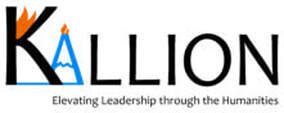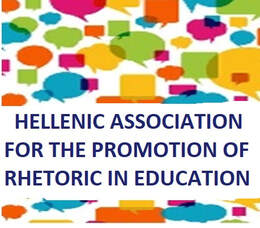IDC GOES ON-LINE!
Strengthen Democracy by Developing Your Own Democratic Leadership at the
2nd International Democracy e-Camp
21st June-15th July 2020
Because of the special circumstances of the COVID-19 Pandemic, the Hellenic Association for the Promotion of Rhetoric in Education (www.rhetoricedu.com) and Kallion Leadership, Inc. (https://kallion.org/) will host online the 2nd International Democracy e-camp for international college students. Experts in fields of psychology, rhetoric, literature, linguistics, law, and political science will work with camp participants to appreciate and practice a range of democratic behaviors including showing empathy, cultivating self-awareness, perspective-taking, civil problem-solving, conflict resolution, mentoring others, and building alliances. International participants will work with each other, and bond with each other, by sharing the similarities and differences in their understanding of democracy. By becoming better at democratic leadership we can all serve as a positive example to others and improve the structures and procedures that make all democratic governments function well across the globe.
Structure of the e-Camp
The camp will take place over four weeks. Members of the camp will participate in the camp in five primary ways:
(1) self-study through reading and journaling,
(2) plenary lectures and interviews with eminent experts in democracy,
(3) additional weekly plenary events focused on cultural exchange and community-building,
(4) discussion cohorts of 6-8 international college students,
(5) the creation of an e-portfolio within cohorts, recounting their development in the camp, to be shared with other cohorts.
Before the Beginning of Camp
Participants will receive descriptions of the topics and themes of democratic leadership that will be covered in each of the eight cohorts. They will then indicate their top three preferences for their cohorts.
During the Camp
The camp will commence with an online plenary introduction to the facilitators of each cohort across two-hour sessions. Students will then meet with their facilitators in their individual cohorts to plan the remaining four weeks. Each week members of a cohort will write in their journals three times for 20-minutes each, to reflect on the aspects of democratic leadership they are trying to develop. They will meet in their cohorts with their facilitator for 90 minutes to talk about topics and themes relevant to democratic leadership and they will meet, without their facilitator, to participate in bonding exercises and to exchange ideas and techniques for their development. Finally, the camp will host one to two lectures and interviews each week for all members of the camp to come together to develop their appreciation for democratic leadership, reflect on their progress, and plan for the future.
Concluding Ceremony
Each cohort in the camp will present to the entire camp an e-portfolio of images, documents, and reflections relevant to their experience in their cohort. These portfolios will be collected online and shared with everyone to explore after the conclusion of the camp.
Certificate of Completion
Participants in the camp will receive a Certificate of Completion. To earn their certificate participants need to attend all four 1,5-hour weekly workshops with their facilitators, all four 1,5-hour weekly workshops without their facilitators, and at least three of the plenary sessions during the camp. They must also contribute significantly to the creation of their cohort’s capstone portfolio.
Meet the Cohort Facilitators
Jeff Beneker, Professor of Classics, University of Wisconsin-Madison
Storytelling and Public Life. How do public figures “control the narrative” to shape their image, advance their career, and establish their legacy? We will study the role of storytelling (in various forms) in the career of US Senator John McCain, with the aim of becoming critical readers of the stories that surround us.
Mallory Monaco Caterine, Senior Professor of Practice in Classical Studies and Greenberg Family Professor of Social Entrepreneurship at Tulane University, Co-executive Director of Kallion Leadership, Inc.
Hope, anger, fear, trust, pride: what role do emotions play in democratic leadership? We will explore ancient and modern views on reading and inspiring the emotions of the community. Participants will discover design thinking and liberatory design mindsets that can help them become more self-aware, empathetic, and effective citizen-leaders.
Valia Loutrianaki, Εducator of Greek Language and Rhetoric, President of the Association for the Promotion of Rhetoric in Education, Phd cand. (University of Athens) in Rhetoric and Creative Thinking in Education
Giota Giannopoulou, Educator of Greek Language and Rhetoric, Phd cand. (Ionian University)
We are what we say. We are what we do. Our team will focus, through various audiovisual documents, to mythical and historical figures, ancient and modern rhetoricians, famous and everyday dreamers and leaders, trying to unlock the components of citizenship as a way of living. Through practicing and designing ways to promote creative thinking, effective communication and powerful action, members will also explore their personal framework of values and competences aiming at democratic culture.
Rhonda Knight, Professor of English and James Wayne Lemke Chair in University Service and Leadership at Coker University
Campers will examine the popular quarantine house meme and then think about how they would create their own house based on democratic principles and dispositions that they define. Campers will fill out their houses with Shakespearean characters they encounter through watching, annotating, and sketching about three Shakespeare plays, Macbeth, Antony and Cleopatra, and Coriolanus.
Georgia Karela, Primary School Teacher, Phd cand. (University of Athens) in Rhetoric in Education
Mary Marin, Secondary School Teacher of English, Drama and Debate, MUN Advisor, Phd cand. (University of Athens) in Human Rights in Education
The world around us is constantly changing, presenting us with significant challenges to deal with. In view of the major persistent gaps that the pandemic has widened, we have to ensure that no one is left behind. There are, however, many barriers to equality and inclusion in a democratic society. With activities covering a range of complex and challenging topics, including religion, diversity, intolerance, peace and conflict and equality, we aim to raise awareness and gain a better understanding of what it means to be a global citizen and how we can make a difference in the world.
Irene Morrison-Moncure, Junior Class Adviser & Associate Faculty at the Gallatin School of Individualized Study
Drama often holds a mirror to democracy, reflecting the successes and shortcomings of a collaborative and participatory government. Through a reading of four plays, this cohort will study how theatre can promote and problematize aspects of democracy and will examine the depictions of democratic leadership that emerge from these dramatic works. We will study Aeschylus’ Eumenides, Shakespeare’s Julius Caesar, Arthur Miller’s The Crucible, and Jerome Lawrence and Robert E. Lee’s Inherit the Wind.
Norman Sandridge, Associate Professor of Classics at Howard University, Co-executive Director of Kallion Leadership, Inc.
In democracies all members of the community need to be at their best and operate as leaders. In my cohort we will explore how characters in three works (Aristophanes’ Lysistrata, Ida B. Wells’ Southern Horrors, and Larry Kramer’s The Normal Heart) overcome dehumanization and argue for their right to full participation in self-governance.
Irene Theodoropoulou, Associate Professor of Sociolinguistics and Discourse Analysis, Qatar University
Intercultural communication and democratic leadership. Leadership nowadays is multicultural, namely it translates into influence across national and cultural boundaries. After a short introduction to the basics of intercultural communication and cultural intelligence, we will focus on political speeches addressing global audiences by looking at the linguistic, discursive and semiotic mechanisms whereby powerful people (fail to) exhibit democratic leadership. At the end, students in this cohort will be asked to jointly write (and give) an interculturally sensitized speech through which they will aim at demonstrating their democratic leadership.
Cost
The cost of the eCamp is 70 EU or $76 and includes participation to all workshops, guest speeches and extra events, digital files of supplementary texts and bibliography, a certificate of participation, participation in e-events during 2020-2021 season. Participants will receive a complimentary Kallion Leadership Sketchbook when it becomes available. Those who complete the camp will be guaranteed a slot in next year’s camp in Crete and a reduction in their registration fee.
Registration
Registration is open from 27th of May and is limited to 50 participants, who will be admitted to the camp on a rolling basis until the cap is reached. The deadline for registration is June 5, 2020 through this link: https://forms.gle/9FcfDuwRw1UeXvyr8
For more info about the aims and workshops of the camp, please e-mail
Valia Loutrianaki (University of Athens, Greece) and Irene Theodoropoulou (Qatar University, State of Qatar) at [email protected]
For any info about registration please contact our communication team: Olia Avdis, communication specialist, Niovi Gennadiou (United World Colleges, Hamburg), Dimitrios Goupios (University of Athens-Law School) at [email protected]
Join our Facebook page «International Democracy Camp-Greece» and our web page https://internationaldemocracycamp-greece.weebly.com to get a glimpse of our 1st International Democracy Camp (trainers and program) and to stay updated!
The e-Camp organizers wish to express gratitude for support from:
MA Program “Rhetoric, Humanities and Education” (University of Athens),
European Democratic Education Community-Greece (https://eudec.gr/en/),
Student Association for International Affairs (https://safia.gr/),
Afixis – World Academic Venture Conference and Model of Greek Parliament (https://afixis.org/)
Τhe Union of Greek Language Educators in Rethymnon, Crete




